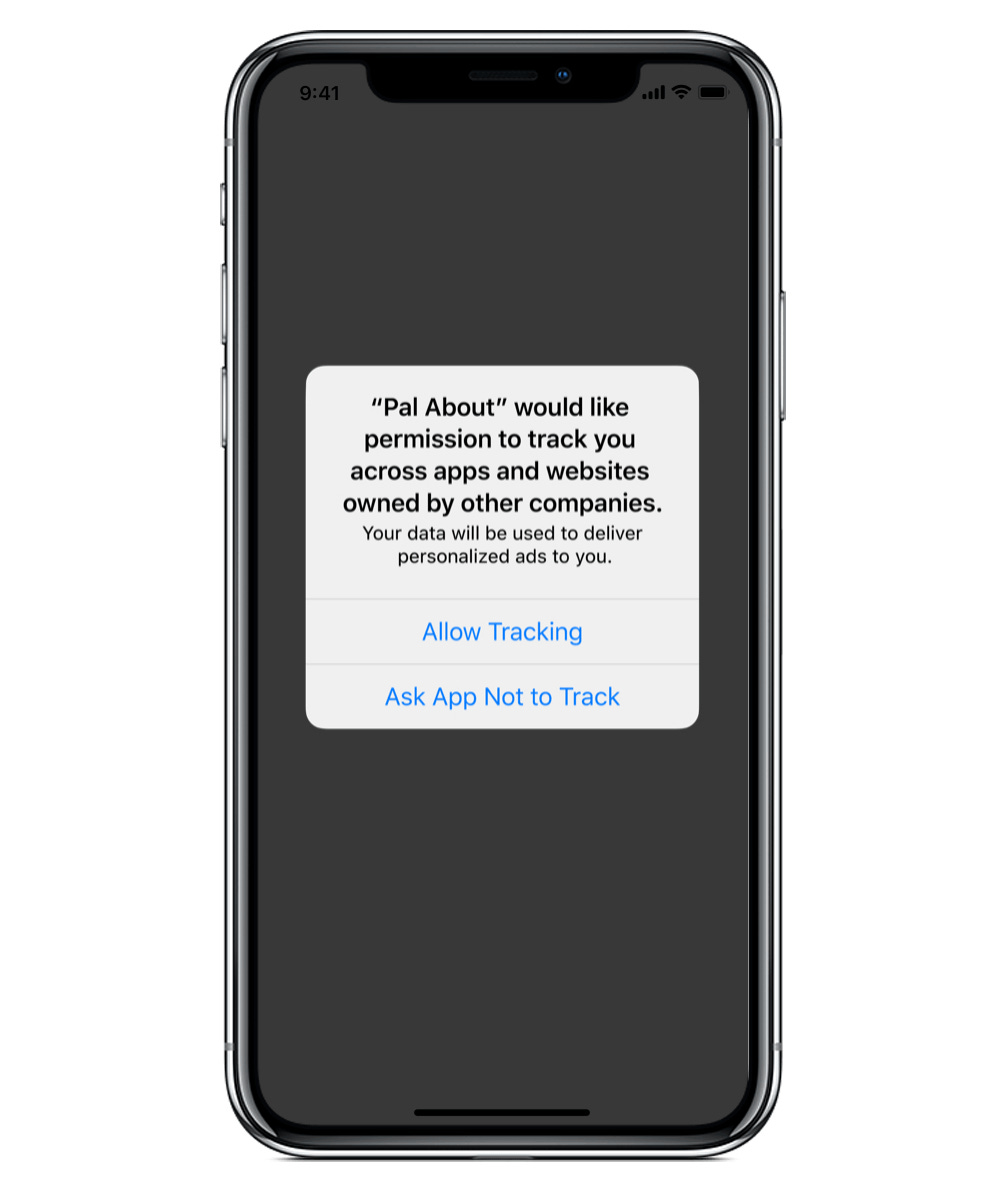Marketing BS Weekly Briefing: iOS 14, Palantir, Local SEO and the Worst Tourist Attractions by State
What Third Way CMOs need to know this week
Slightly new format this week. I want this Tuesday email to be more than just “links” - it is a “briefing” on the previous weeks events. Mostly this is the same structure as earlier editions, but this week I will go a little deeper into one piece of news. If you are enjoying these, please HEART, share and send me feedback.
Meta/Follow-up
The Future of Marketing: Some of you called me out on “Step 4: Go viral”. Fair. My point was that once a company is big enough, the media pays attention to their ads. By creating controversial ads they are pretty much guaranteed the media will cover it and give it increased distribution. I would love to hear about examples where that did not work
Marketing BS Podcast: I have uploaded a teaser with the “opening credits” for the show. You can click through to subscribe on your favorite podcast player (you will also receive episodes with transcripts through the email newsletter when they are available). Let me know what you think.
Media I consume: A list of my regular inputs (the new version of a “blogroll”?)
Monetization: Media companies have large audiences and terrible monetization. “Product” companies have (comparably) tiny audiences and great monetization. Patrick Campbell argues that traditional companies should build media businesses to grow their audience - and then push that audience to their proven monetizing products.
Marketing to Employees: My hobby-horse. Not a lot of nuance in this article in MarketingWeek (no need to click) but at least others are starting to talk about it…
Augmented PR: Uber running a (Racists Should) “#DeleteUber” campaign. This should also help their SEO (what happens now when you search for “delete uber”?)
Bundles: Rob Litterst explains why he thinks Apple’s new bundle will fail
News Analysis
Apple announced earlier this year that upon the release of iOS 14 (coming in October) apps would no longer be allowed to use “unique identifying information (IDFA) without explicit opt-in by users. Last week Facebook responded explaining how this will affect developers who use Facebook’s “Audience Network” (FAN). My take:
FAN allows developers to serve ads within their third-party apps.
Companies can advertise through FAN using the same interface (and targeting) they use to buy Facebook newsfeed ads. They know their ads are appearing in these third party sites (and how performance varies vs appearing directly on Facebook or Instagram)
For years apps used the iPhone’s “MAC address” or “Unique Device Identifier” (UDID) to identify users (to match them with Facebook’s records). In 2012 Apple blocked that method and required all tracking to go through “IDFA”. With iOS 14 Apple will require apps to ask permission to use IDFA for tracking purposes. Here is a screenshot of what the permissions will look like:
Unsurprisingly Facebook does not think many users will “Allow Tracking” from both the Facebook app itself and a significant number of third party apps. So they are considering shutting down FAN for the iPhone (~50% of FAN’s revenue)
Note that tracking will still be possible on the iPhone through other techniques (like email addresses or “Login with Facebook”), and while Apple can’t stop those methods, they have explicitly made any tracking that does not solicit explicit consent using Apple’s opt-in language against the rules (on threat of being expelled from the app store)
Facebook has said FAN will no longer use IDFA (they have no choice), but they have NOT committed to following Apple’s new policy or preventing apps from trying to work around the rules
This is going to hurt Facebook marginally (FAN is ~5% of Facebook’s ad revenue), but it will demolish the business models of many ad-supported iOS applications. Facebook’s in-app targeting will be relatively unchanged.
More News
TikTok: Softbank becomes a potential buyer. Walmart partners with Microsoft for a combined bid (Why this could help Walmart become an “advertising powerhouse”) . TikTok USA CEO resigns, “I did not sign up for this”. Then over the weekend, China may be blocking a sale over the sharing of “AI technologies”. I think Bytedance should spin out the company out with the help of some (American) PE-firms. Just eliminate the opportunity for China to put pressure on the algorithm and all will be well. But I’m just the marketing guy.
Neualink: Elon Musk’s other-other company had a press conference on Friday demonstrating their brain implant in pigs. tldr: The brain implant is kind of like a cochlear implant (that lets the deaf hear), but “general use” that allows (in theory) just about any message to be sent to, from and through the brain. Jeremy Arnold has good commentary on what this all means (“The Apple of wearables”)
Palantir: The “evil big brother company” co-owned by Peter Thiel has released their S-1. Their business model is predicated on serving government agencies (like ICE and the Department of Defense). They use their S-1 to explain why that “bug” is really a “feature” and why the other tech companies choosing not to engage with the military are not only wrong, but immoral. I highly recommend this write up by Byrne Hobart on what this all means.
Apple/Epic: Apple blocked Epic’s developer account for ALL of their games (not just Fortnite), but NOT the account for Epic’s gaming engine used by third party developers
Marketing/Advertising
Local SEO: How to optimize for Local Search. Rand Fishkin responds.
CVS: The retailer is launching an ad buying platform (just like Amazon and Walmart). “Purchase data” is the data that matters when creating lookalike audiences (which is the most effective way to target), and retailers have that data. Expect more of this. Now they just need to get the ad units right (the OTHER hard part)
Disney/Viacom: Their streaming ad servers are not connected to their network ad servers - so advertisers cannot buy across the platforms to target incremental reach. This is an argument AGAINST splitting up Facebook/Instagram. The normal anti-trust argument is that, while the combination may be good for consumers, it is bad for advertisers, but the the Facebook/Instagram ad servers ARE connected, so buyers CAN optimize for incremental reach. Splitting them would lose that ability, and likely drive UP effective “reach ad rates”.
Facebook: Has launched a video series using internal data to share what works best when creating Facebook ads. Part 1. Part 2. Key insights: Add motion for +17% higher engagement (does not need to be much). Sound increases engagement (even though most will stay muted). Informal ads shot on mobile phones perform better than professionally produced content.
Strategy
Amazon: Is launching Audible+ - a monthly subscription with a library of free books and audio content from celebrities. Sounds a lot like podcasts - but note, unlike Spotify’s play (and related to yesterday’s essay): there are no ads.
Apple: Is buying more AR tech - iGlass will come someday…
Nike: Is moving more towards become a DTC brand. They are shutting down distribution through Zappos, Bob's Stores, Boscov’s, Belk, Dillard's, Fred Meyer, EbLens, BIM, and City Blue. (They had already ended their partnership with Amazon in 2019). They are maintaining distribution with “strategic partners” like Dick Sporting Goods and Foot Locker.
Thrasio: Is rolling up companies that sell on Amazon. Balanced View has a great breakdown of the business model
Retail
Airports: In 2017 the average mall retailer made $325/square foot. The average retailer at the Los Angeles airport (leading airport for concessions sales in America) had revenue of $3,036 a square foot (!). Convenience matters! (Obviously airport retailers are not doing so well these days…)
Store Closures: Things have been bad for years, but there has been a massive (unsurprising) 2020 acceleration of the trend
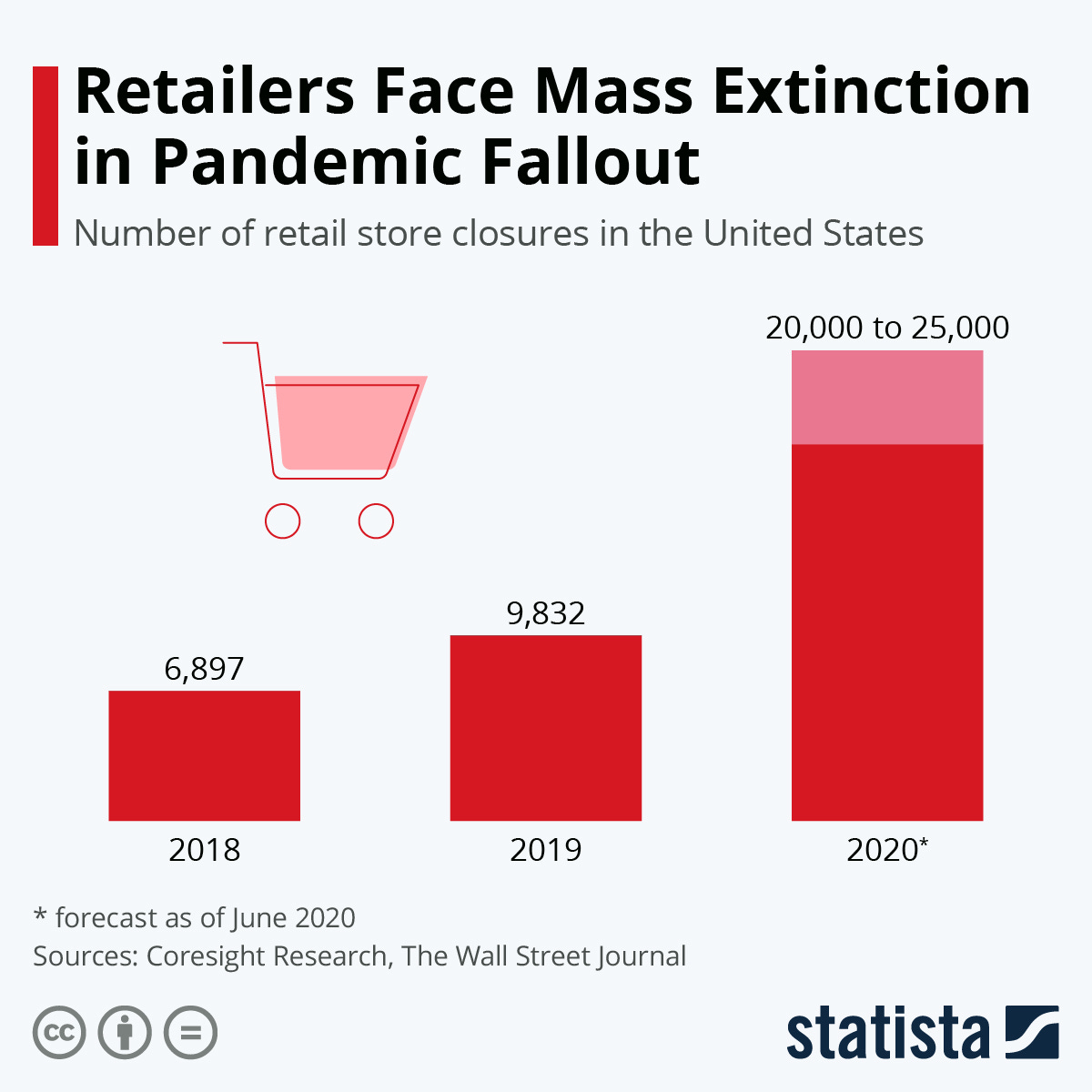
COVID and the new world order
Television advertising: “The TV industry will never recover from COVID” - 2020 has accelerated the decline described in yesterday’s essay.
Comedy: Comedians don’t know what is funny without audience feedback, which has been hard to come by the last few months…
Apps: App open rates are way up - Business app opens are up +26%, Media up +55% YoY from Mar-June (only categories with drops are Travel and Sports)
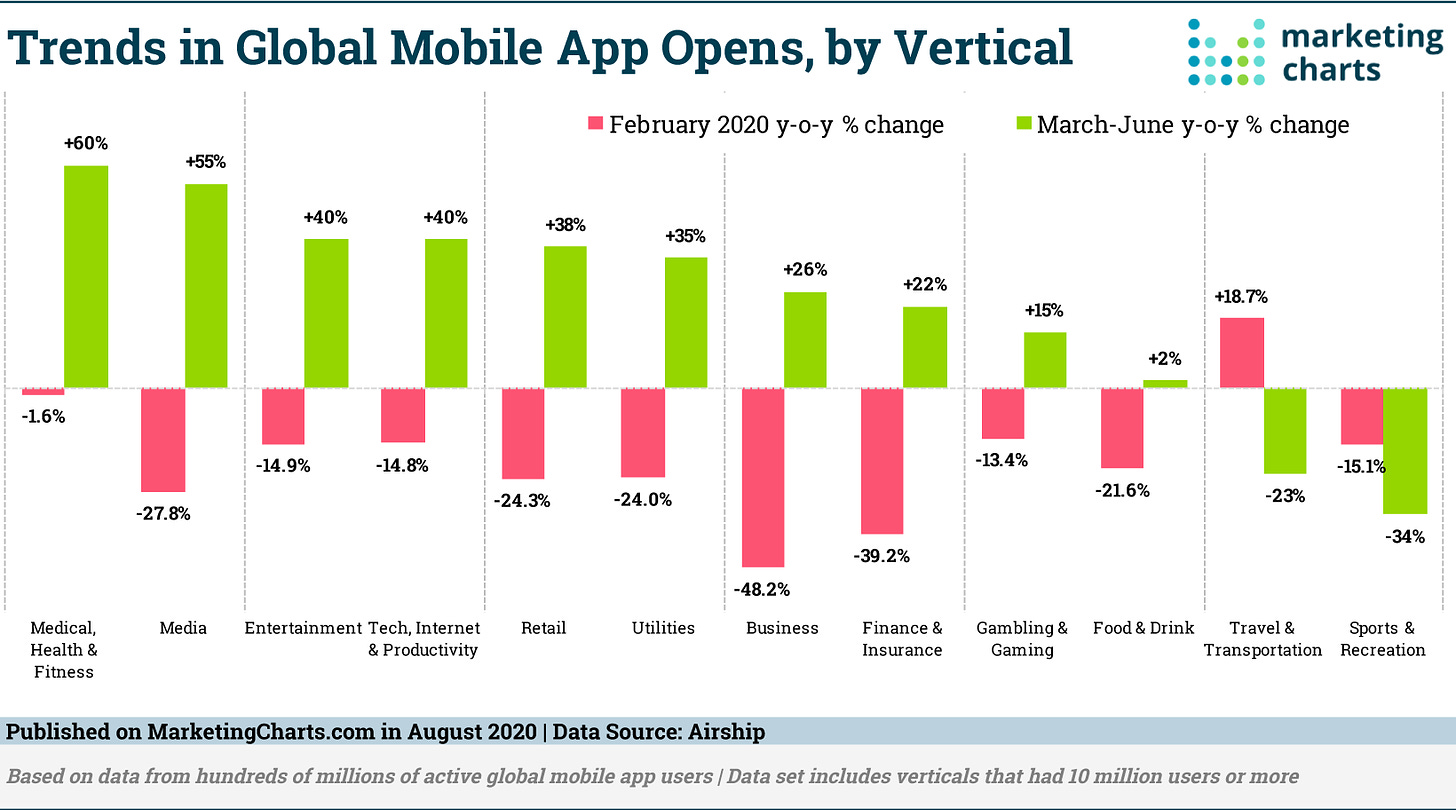
Digital Audio: Audio streaming growth slowed down from March (less commuting to work?), but is still posting double digit YoY growth
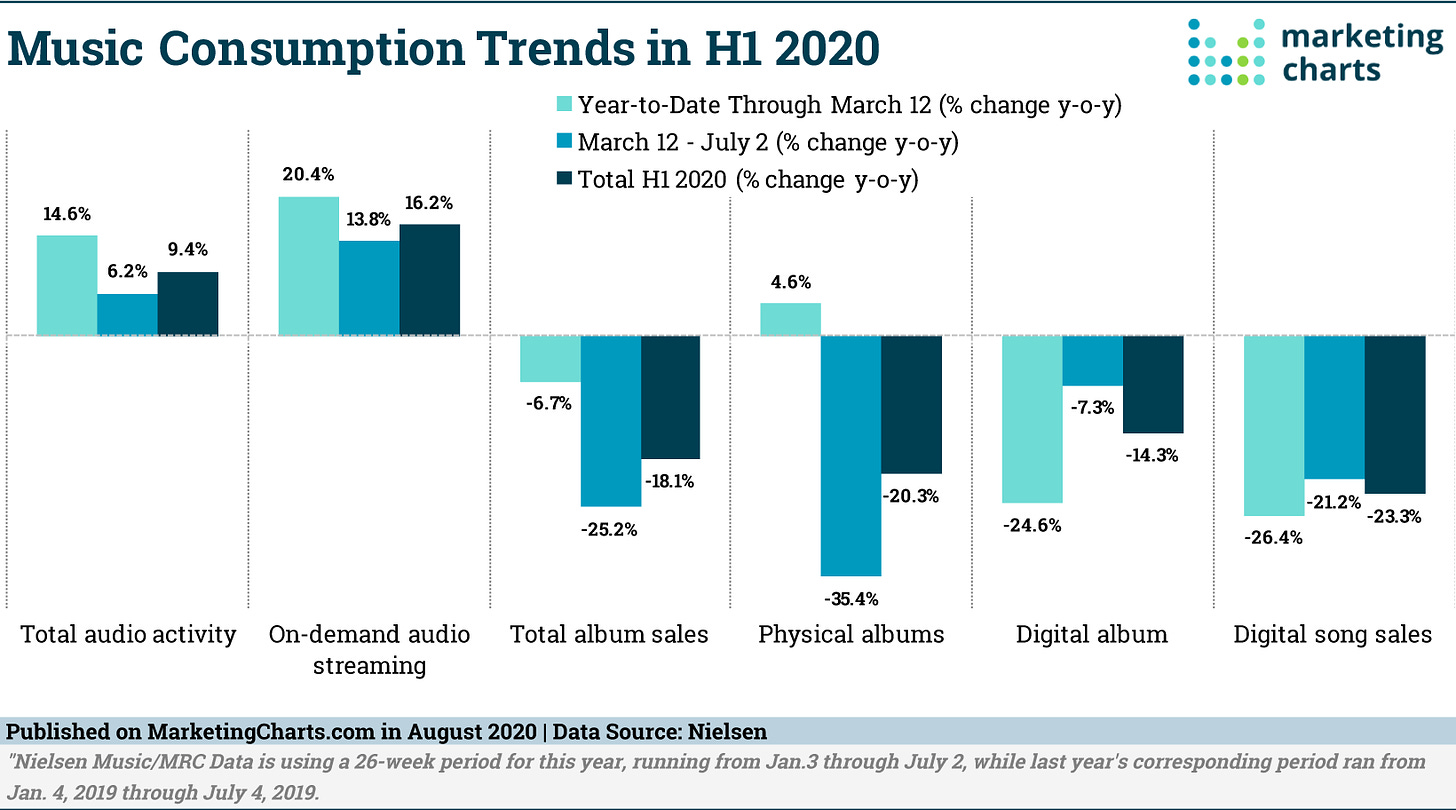
New York: James Altucher says New York is dead. Post goes viral. Jerry Seinfeld responds in the NYTs defending the city. James responds the the response. All good arguments. But clearly no one knows anything.
New York 2: 1-bedroom and studio apartments in Manhattan apartments drop in value - unless they have a terrace, in which case they are up +5%…

Market Research
Boycotts: Rich people more likely to believe boycotts work (and more likely to participate). Boycotts DON’T work (Marketing BS essay). I think a better framing is, “rich people have the financial ability to signal luxury beliefs by participating in boycotts. And people rationalize their actions by changing their beliefs as needed.”
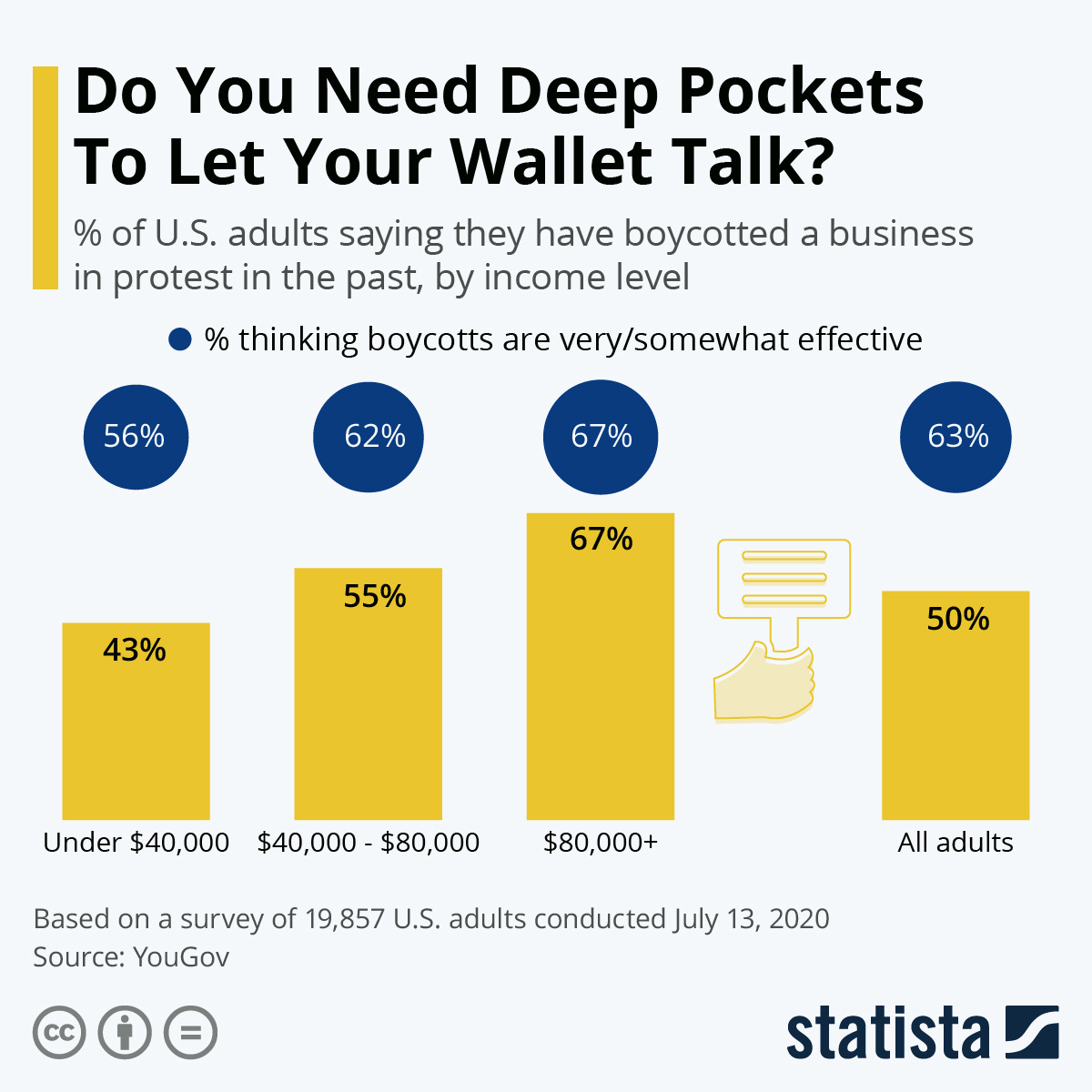
Social Media: Facebook users overestimate how much time they spend on the site and underestimate how many times they log in. Reason #378 to NEVER trust self-reported data.
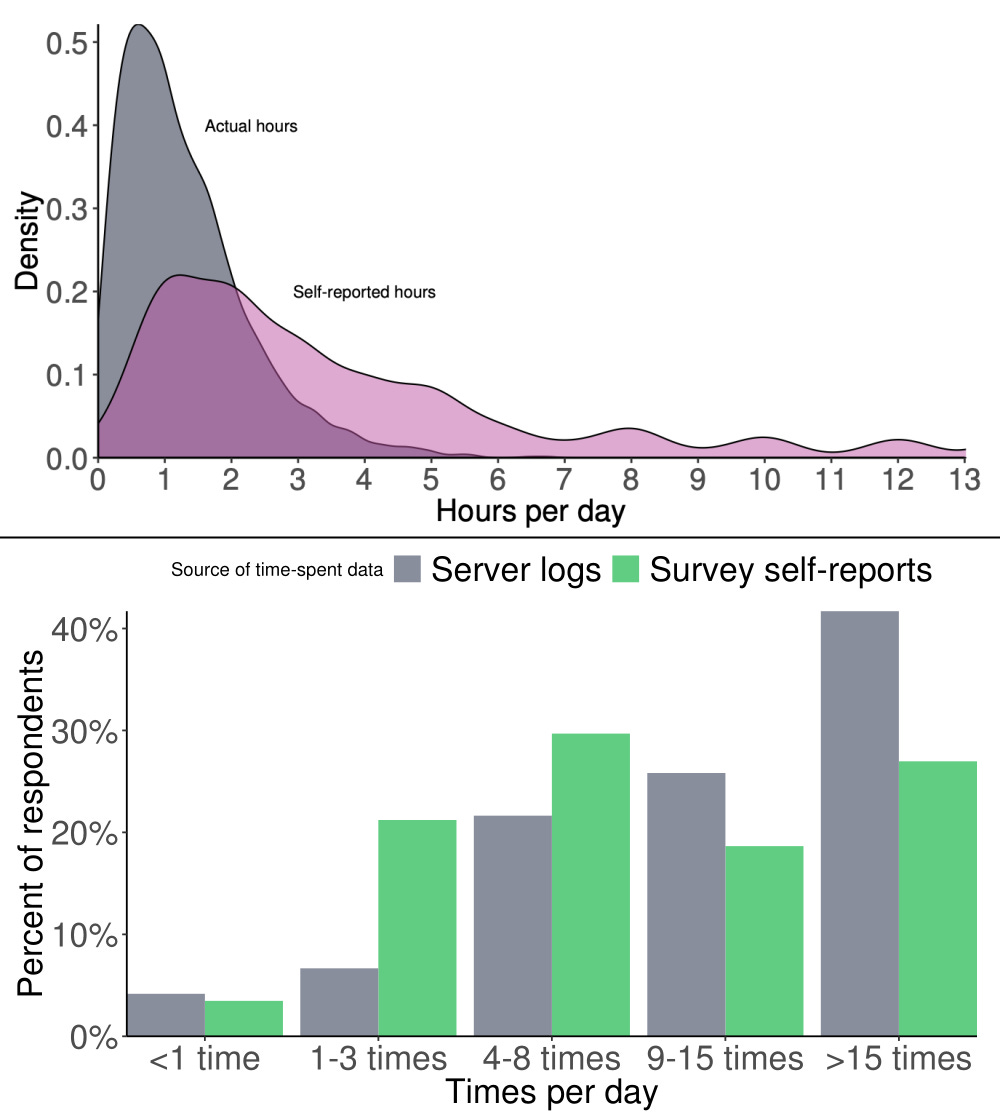
GPT-3 , Machine Learning and Data
Private Communities: Adam Keesling (NapkinMath) argues that GPT-3 will make social networks “less real”, resulting on more people moving to private social networks like Slack and Discord. Most of the post is describing GPT-3 and more examples. Skip to the last section to read his argument (I don’t buy it, but worth considering).
Fun
Blockbuster/Enron: Good thread from Matthew Ball on how random events ended up having huge impacts (CocaCola’s decisions resulting in the Sony Playstation; An early 20th century chocolate distributor’s decisions leading to the Marvel Cinematic Universe). Best story of the bunch is how "Enron and Blockbuster entered a streaming deal. It fell through. Someone noticed the wonky accounting result of that deal unwinding at Enron. They dove into the Enron books and found tons of issues."
Languages: People have stopped trying to get their kids learn to Mandarin
New Star: The youngest star ever identified - only 33-year’s old!
Tennis: The culture behind why the crowds are expected to be so quiet. Everything is explained by status…
Worst tourist attractions by state: A poll, but interesting none-the-less. I can vouch for The Gum Wall being terrible. But there are definitely worse attractions in Florida than Disney (The Holy Land Experience anyone?) and what’s wrong with the Grand Canyon?
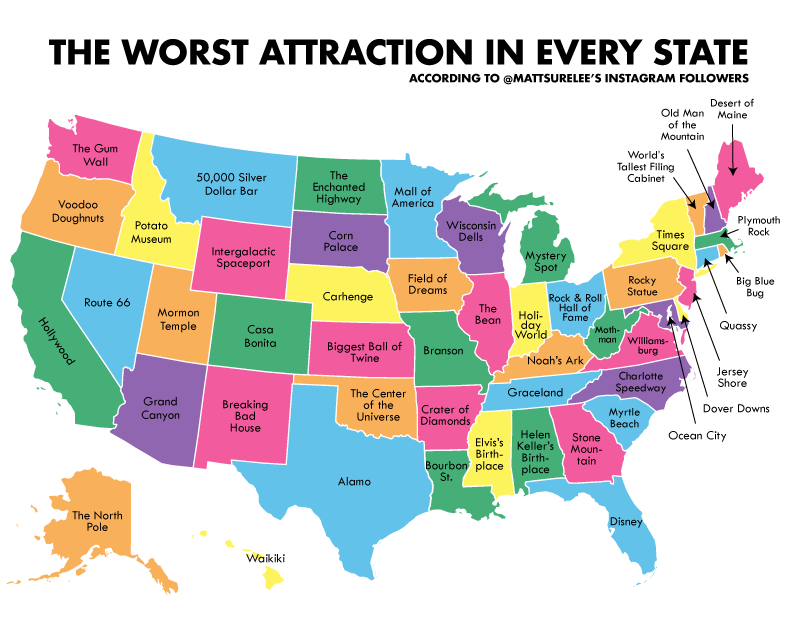
Keep it simple,
Edward



